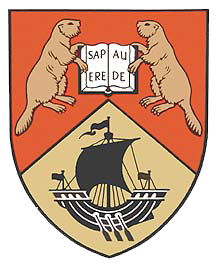
The University of New Brunswick (UNB) is a public university with two primary campuses in Fredericton and Saint John, New Brunswick. It is the oldest English-language university in Canada, and among the oldest public universities in North America. UNB was founded by a group of seven Loyalists who left the United States after the American Revolution.

Bowdoin College is a private liberal arts college in Brunswick, Maine. When Bowdoin was chartered in 1794, Maine was still a part of the Commonwealth of Massachusetts. The college offers 35 majors and 40 minors, as well as several joint engineering programs with Columbia, Caltech, Dartmouth College, and the University of Maine.

Brunswick is a town in Cumberland County, Maine, United States. Brunswick is included in the Lewiston-Auburn, Maine metropolitan New England city and town area. The population was 21,756 at the 2020 United States Census. Part of the Portland-South Portland-Biddeford metropolitan area, Brunswick is home to Bowdoin College, the Bowdoin International Music Festival, the Bowdoin College Museum of Art, the Peary–MacMillan Arctic Museum, and the Maine State Music Theatre. It was formerly home to the U.S. Naval Air Station Brunswick, which was permanently closed on May 31, 2011, and has since been partially released to redevelopment as "Brunswick Landing".
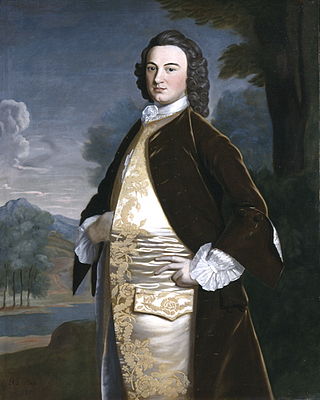
James Bowdoin II was an American political and intellectual leader from Boston, Massachusetts, during the American Revolution and the following decade. He initially gained fame and influence as a wealthy merchant. He served in both branches of the Massachusetts General Court from the 1750s to the 1770s. Although he was initially supportive of the royal governors, he opposed British colonial policy and eventually became an influential advocate of independence. He authored a highly political report on the 1770 Boston Massacre that has been described by historian Francis Walett as one of the most influential pieces of writing that shaped public opinion in the colonies.

The Alfred Wegener Institute, Helmholtz Centre for Polar and Marine Research is located in Bremerhaven, Germany, and a member of the Helmholtz Association of German Research Centres. It conducts research in the Arctic, the Antarctic, and the high and mid latitude oceans. Additional research topics are: North Sea research, marine biological monitoring, and technical marine developments. The institute was founded in 1980 and is named after meteorologist, climatologist, and geologist Alfred Wegener.
John Sterling Rockefeller was an American philanthropist, conservationist, and amateur ornithologist. He purchased Kent Island in the Bay of Fundy in order to establish a bird sanctuary, and later donated the island to Bowdoin College for use as a research station.
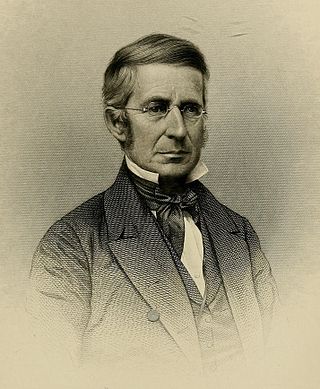
Alpheus Spring Packard was an American academic who was a professor for more than 40 years at Bowdoin College. Trained as a minister, he was an educator, librarian, and acting President of Bowdoin College for the year 1883–84 until his death. He was the father of four sons and one daughter by his first wife: Alpheus Spring Packard Jr. (1839–1905), Bowdoin class of 1861, Civil War surgeon, entomologist who corresponded with Darwin, and a professor at Brown University with 25 publications; William Alfred Packard (1830–1909), Bowdoin class of 1851; Charles A. Packard, Bowdoin class of 1848; George Packard; and Frances Appleton.

Cambridge Seven Associates, Inc., stylized as CambridgeSeven, and sometimes as C7A, is an American architecture firm based in Cambridge, Massachusetts. Buildings designed by the firm have included academic, museum, exhibit, hospitality, transportation, retail, office, and aquarium facilities, and have been built in North America, Europe, the Middle East, and Asia. Besides architecture, it operates in the areas of urban design, planning, exhibitions, graphic, and interior design.

WBOR is the student-run, noncommercial, college radio station licensed to Bowdoin College in Brunswick, Maine, United States. The station broadcasts from the basement of the Dudley Coe Building on the Bowdoin College campus. DJs are predominately full-time Bowdoin students; however, many staff and faculty members, and community members host weekly shows. WBOR can be heard throughout the Mid Coast area.

Willard Finley Enteman was the eleventh president of Bowdoin College in Brunswick, Maine.

Brunswick Maine Street Station, or Brunswick station, is a multi-modal, multi-use real estate development in Brunswick, Maine. Located on Maine Street, it consists of commercial offices, service centers, healthcare, retail, restaurants, theater and residential space. Brunswick Station is also a transportation hub for city buses, taxis, and passenger trains.
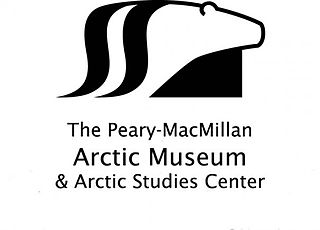
The Peary–MacMillan Arctic Museum is a museum located in the John and Lile Gibbons Center for Arctic Studies at Bowdoin College in Brunswick, Maine. Named after Arctic explorers and Bowdoin College graduates Robert E. Peary and Donald B. MacMillan, it is the only museum in the lower 48 states of the United States dedicated completely to Arctic Studies.
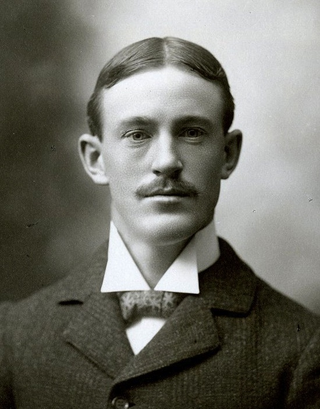
James Howard Horne was an athletic director and coach of American football, basketball, baseball, and track and field at Indiana University between 1898 and 1905.

The Bowdoin Polar Bears are the intercollegiate athletic teams that represent Bowdoin College, located in Brunswick, Maine. The Polar Bears compete in the National Collegiate Athletic Association (NCAA) and New England Small College Athletic Conference (NESCAC). Bowdoin College currently fields teams in fourteen men's sports and sixteen women's sports. The polar bear team name was selected to honor Robert Peary of the class of 1877 who lead the first expedition that reached the North Pole.

Matilda White Riley was an American gerontologist who began working at Rutgers University as a research specialist before becoming a professor from 1950 to 1973. Here she wrote a textbook and discovered her interest in aging. In 1973, Riley became the first woman full professor at Bowdoin College, where she worked until 1981. She spent much of her career as a sociologist specializing in aging at the National Institute on Aging, part of the National Institutes of Health. Additionally, Riley worked with the Russell Sage Foundation from 1974 to 1977 where she wrote works on the age-stratification paradigm and aging society perspective.
Harrison King McCann, was the founder of the H. K. McCann Company. H. K. McCann Company was an advertising agency that, as McCann Erickson, grew to become the world's largest with a global network of offices in more than 130 countries, providing advertising campaigns for brands including Standard Oil, Vaseline, Beech-Nut, Del Monte, Nabisco, Coca-Cola, General Motors, Martini, Gillette, L’Oréal, Bacardi, Nestlé, R.J. Reynolds and MasterCard.
Robert M. (Bob) Cunningham was an American cloud physicist. He specialized in the study of fog, running a weather research station on Kent Island in the Bay of Fundy for over 60 years.
Allan Leopold Moses was a Canadian naturalist, taxidermist, and conservationist. A native of Grand Manan Island in the Bay of Fundy, he participated in scientific expeditions sponsored by the Cleveland Museum of Natural History and the American Museum of Natural History. By encouraging John Sterling Rockefeller to purchase Kent Island as a bird sanctuary in 1930, he was instrumental in the revival of the Bay of Fundy common eider population. His taxidermy collection of over 300 birds, all mounted by his grandfather, father, or himself and now displayed in the Grand Manan Museum, is one of the largest in Canada.
Pearl Tenney Haskell was an American physician, politician, and college football coach. He served as the head football coach at Bowdoin College in Brunswick, Maine in 1891 where he was a medical student.
Alfred Otto Gross was an instructor, ornithologist, and professor of biology at Bowdoin College. He went on two Arctic expeditions to study birds in the region. He studied numerous North American bird species including the ruffed grouse, snowy owl, and goshawk but is best known for his studies of the last populations of the now-extinct heath hen.















